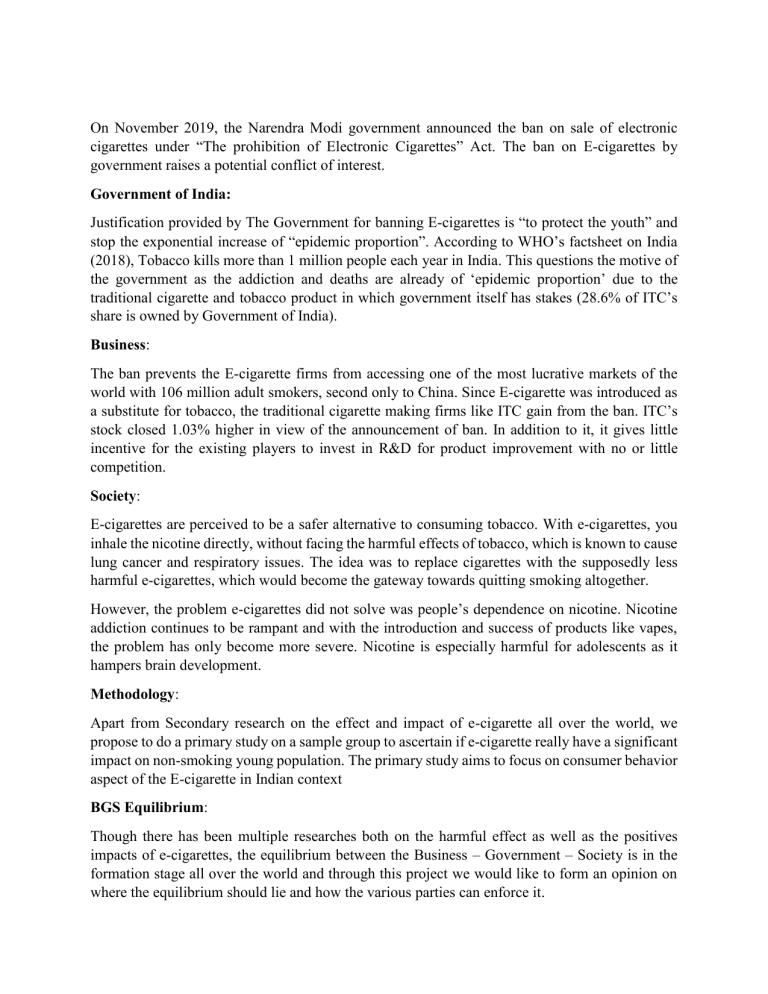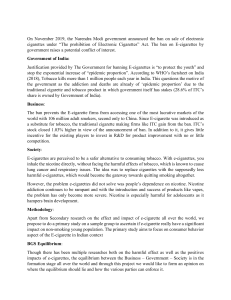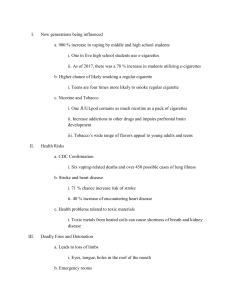
On November 2019, the Narendra Modi government announced the ban on sale of electronic cigarettes under “The prohibition of Electronic Cigarettes” Act. The ban on E-cigarettes by government raises a potential conflict of interest. Government of India: Justification provided by The Government for banning E-cigarettes is “to protect the youth” and stop the exponential increase of “epidemic proportion”. According to WHO’s factsheet on India (2018), Tobacco kills more than 1 million people each year in India. This questions the motive of the government as the addiction and deaths are already of ‘epidemic proportion’ due to the traditional cigarette and tobacco product in which government itself has stakes (28.6% of ITC’s share is owned by Government of India). Business: The ban prevents the E-cigarette firms from accessing one of the most lucrative markets of the world with 106 million adult smokers, second only to China. Since E-cigarette was introduced as a substitute for tobacco, the traditional cigarette making firms like ITC gain from the ban. ITC’s stock closed 1.03% higher in view of the announcement of ban. In addition to it, it gives little incentive for the existing players to invest in R&D for product improvement with no or little competition. Society: E-cigarettes are perceived to be a safer alternative to consuming tobacco. With e-cigarettes, you inhale the nicotine directly, without facing the harmful effects of tobacco, which is known to cause lung cancer and respiratory issues. The idea was to replace cigarettes with the supposedly less harmful e-cigarettes, which would become the gateway towards quitting smoking altogether. However, the problem e-cigarettes did not solve was people’s dependence on nicotine. Nicotine addiction continues to be rampant and with the introduction and success of products like vapes, the problem has only become more severe. Nicotine is especially harmful for adolescents as it hampers brain development. Methodology: Apart from Secondary research on the effect and impact of e-cigarette all over the world, we propose to do a primary study on a sample group to ascertain if e-cigarette really have a significant impact on non-smoking young population. The primary study aims to focus on consumer behavior aspect of the E-cigarette in Indian context BGS Equilibrium: Though there has been multiple researches both on the harmful effect as well as the positives impacts of e-cigarettes, the equilibrium between the Business – Government – Society is in the formation stage all over the world and through this project we would like to form an opinion on where the equilibrium should lie and how the various parties can enforce it.



